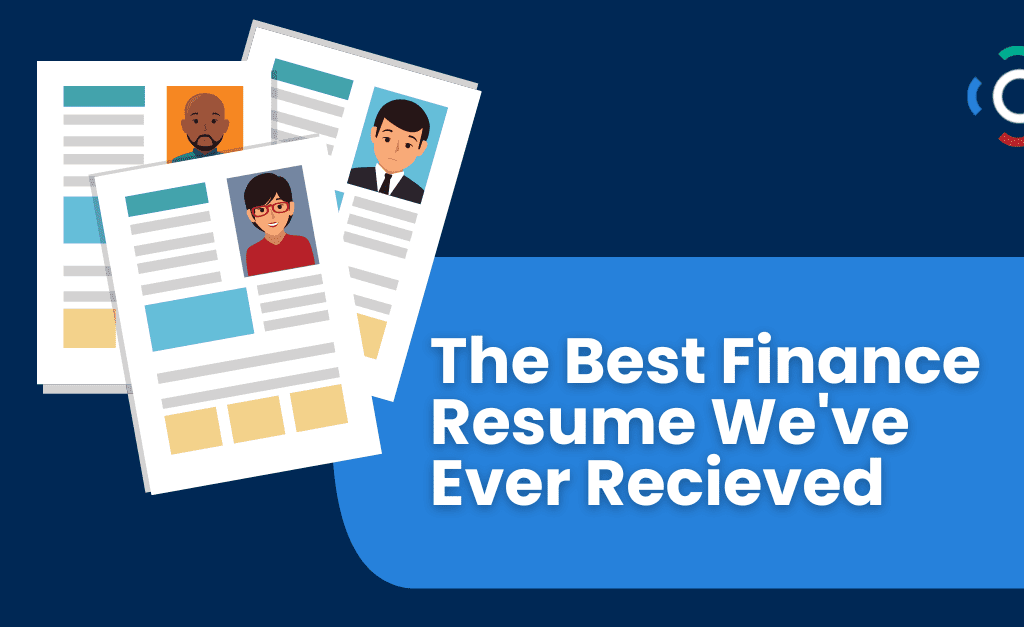What constitutes ‘the best’ in anything?
We bandied this topic around quite a bit, with each recruiter offering their version of what they thought was the best finance resume they’d ever seen.
At the end of it all, we decided that the best finance resumes were actually a compilation of 5 key attributes.
Bling is Not In for Finance Resumes
For a resume to shine (sorry, we couldn’t resist) it’s best to keep the format simple. Minimize text boxes, ensure there’s a lot of white space and keep it to less than two pages. Select one font and if you have to differentiate sections you can bold and/or italicize, but really, clean and simple wins the day.
Highlight Your Professional Experience
Under your Professional Experience section make sure to include your title, the company you worked for and a brief description of the organization (1-2 lines maximum, such as the size and whether it’s public or private). Include your core responsibilities and consider dividing them into monthly, quarterly and annually.
Add Key Accomplishments to Your Finance Resume
No resume is complete without a key accomplishments section. Ideally, you would list specific outcomes you achieved under each role you held.
- Did you take part in process improvements?
- What was the result? Were you the lead contact in an acquisition?
- How did you deliver?
- What about being the go-to person during an SAP implementation?
- Try to select accomplishments that highlight both your soft and hard skills.
We all agree, what differentiates a good resume from a ‘wow I want to interview this person’ resume is this section.
Don’t Forget Systems and Excel Skills
Consider highlighting advanced Excel functions you are comfortable using, along with any systems you’re proficient in. Employers like to hire people whose ramp-up time is short and whose technical proficiency can mean you’re productive sooner.
Absolutely Include Volunteer Experience
Interestingly, some of the best resumes we’ve seen include volunteer experience that is relevant to the finance and accounting industry. To employers and recruiters, it shows you have a sense of community –an appealing prospect when you’re building a team, for example.
Don’t Forget to Proofread Your Finance Resume
Proofreading your resume is an important step before submitting it for consideration. A single mistake can cost you a job opportunity and the time spent crafting and perfecting your resume will be wasted if it contains errors. It’s also important to make sure that all the information on your resume is current, accurate, and relevant to the position you are applying for.
Even experienced finance professionals can overlook details when proofreading their own resumes. That’s why it’s essential to take a break from writing or editing so that you can come back with fresh eyes and spot any mistakes or inconsistencies in your work. A thorough review of your resume will ensure that everything looks professional, polished, and error-free which will give employers confidence in considering you as a potential candidate.
Remember, a great resume can differentiate you from your competition. They make the employer want to pick up the phone or send you an email. Done well, a resume gets you the interview you want and pre-sells you to the organization you want to work for. This makes taking the time to craft the right resume a worthwhile investment.
Now that you’ve updated your resume, it’s time to brush up on your interview skills. Check out these Dos and Don’ts for your next interview.
Looking for career advice? Even if you’re not ready to switch industries, we’d love to help you think through your career progression. Check our out latest job openings here or fill out this form to share your resume with our recruitment team.

